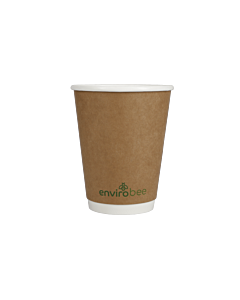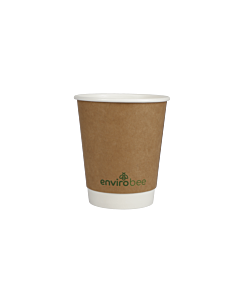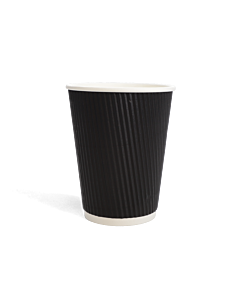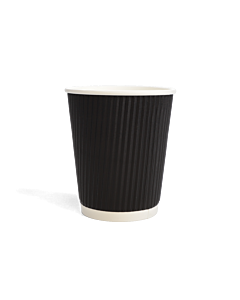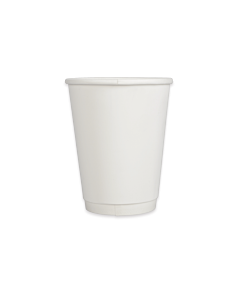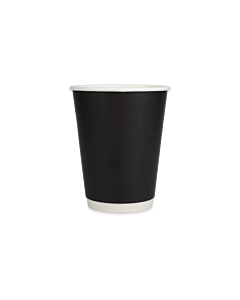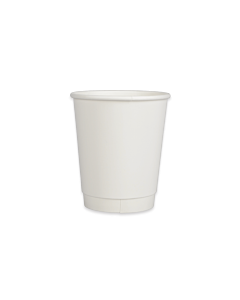Paper Cup Waste - The Facts & The Solution
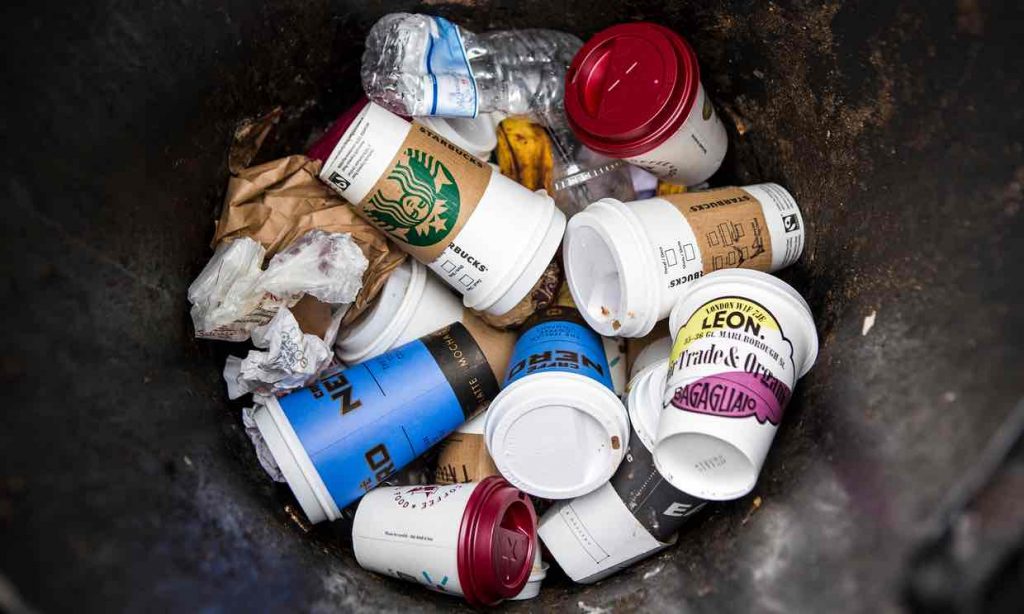
The takeaway coffee market in the UK is big business and has had sustained growth over the last 20 years to now £10.1bn during 2018 with over 25,000 coffee outlets around the UK. (Alegra project Cafe UK, research study)
The product solution for serving the 2.5 billion takeaway coffees in the UK is the lovable Paper Cup. Over the 2017/18 there was heightened media coverage of single-use paper cups in the UK which resulted in talks at the Houses of Parliament about a suggested ‘Latte Levy’.
Let us explain the cups available on the market and the environmental qualities and solutions.
What is wrong with normal paper cups?
The majority of paper cups used in the UK are lined with PE (Polyethylene) which is a plastic coating that makes the paper cups waterproof meaning your coffee doesn’t leak. Decades ago this was a big leap forward in innovation over the previously used polystyrene cups.
These PE paper cups offer the solution for takeaway coffee. However, where their downfall comes is what happens when the consumer finishes the coffee.
PE lined cups can only be recycled at one of three places in the UK which results in the majority of these cups going to landfill, the logistics to collect, sort and deliver 2.5 billion cups from all corners of the UK to be sent to just a few places to be recycled is not commercially viable.
What about compostable paper cups?
The compostable paper cups seemed to be the next best solution for reducing paper cups going to landfill. However, the reality was not so.
Compostable paper cups are lined with PLA (Polylactic Acid). PLA is a polymer which is produced from plant material meaning the cup has no oil based plastic. For reducing plastic in single used disposables, this was a big tick for compostable cups.
However, what happens when the consumer finishes their takeaway coffee? Well, these compostable cups are only able to compost down if sent to a commercial composting facilities where it will take 12 weeks for them to compost.
In the UK we don’t have a network of commercial composting bins on the high streets and consumers are confused about what to do with the cups. Compostable cups can’t go in the recycling bin and therefore end up in landfills.
Many believe that’s OK. As it’s compostable, it just disappears into the ground right? Well no, it won’t. The conditions in a landfill are not right for the cup to breakdown and therefore only contribute to the volume of waste going to landfills in the UK.
If coffee outlets have closed environments that can control waste collections the compostable cups can work at additional waste collection costs.
When Magenta UK spoke to the government, we asked where its investment will be put in managing waste in the future. The answer was in recycling and not composting.
What is the solution? Is there one?
Yes, there is a solution! 100% Recyclable Cups.
Magenta UK was the first distributor in the UK to stock and supply at commercial volumes a recyclable paper cup which requires no changes to the UK’s current infrastructure in handling waste.
The lining of 100% Recyclable Cup is made with earthcoating®, this lining in the paper cups has 51% less plastic than the standard paper cups and is engineered to be recyclable through traditional paper recycling facilities in the UK & Europe.
The result is that these paper cups can be put in the paper/card recycling bins throughout the country and can be accepted by all paper waste processes and paper mills in the UK & Europe.
It is an exciting reality that coffee shops around the UK can now purchase at commercially viable costs a paper cups which requires no additional investment to the current UK waste streams.
The 100% Recyclable Cup are available off the shelf as a double-walled cup in the designs in the photo to the right. Magenta UK is also able to brand these cups with the coffee shops own logo and colours.
Call 0115 9444434 or email hello@catering24.co.uk to find out more information on these cups and for availability and pricing.
A few of our most popular Paper Cups:
